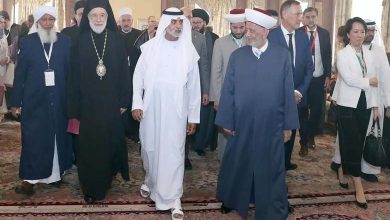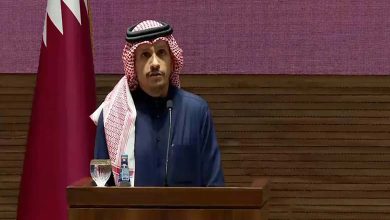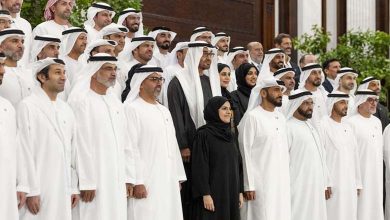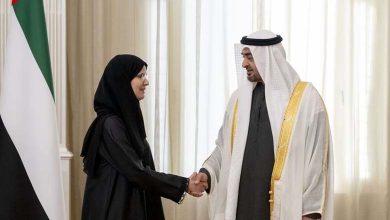Agreement at COP28 on fossil fuel transition after tough negotiations
The draft agreement indicates a shift away from the use of all types of fossil fuels, including oil, gas, and coal, to enable the world to achieve carbon neutrality by 2050

The draft calls on the United Nations Climate Change Conference in Dubai to “transition away from the use of all types of fossil fuels to enable the world to achieve carbon neutrality by 2050,” according to the latest compromise that the UAE seeks to have approved on Wednesday.
The text, aiming to be the first decision issued by the conference, addresses the fate of all types of fossil fuels, including oil, gas, and coal, without including the phrase “phasing out” of these fuels demanded by the more ambitious countries and rejected by oil-producing countries, led by Saudi Arabia.
Additionally, the draft calls for accelerating the energy transition from the current decade as a “decisive” period. In a key negotiation point, the text proposes under discussion the recognition “of the need for a strong, rapid, and sustainable reduction in greenhouse gas emissions, in line with pathways to limit warming to 1.5 degrees Celsius, and calls on parties to contribute to the following global efforts,” listing 8 types of actions.
The pathway that should capture the negotiators’ attention emphasizes “shifting away from the use of fossil fuels in energy systems, in a fair, organized, and equitable manner, by accelerating action in this decisive decade to achieve carbon neutrality by 2050 in line with scientific recommendations.”
Among other important paragraphs is one that aims to triple renewable energy by 2030, develop “low-carbon” nuclear and hydrogen energy, and carbon capture technology, which is still immature but favored by oil-producing countries.
Negotiations extended until Wednesday, with nearly 200 countries striving to overcome divisions over the future use of fossil fuels.
Brazil’s Minister of the Environment, Marina Silva, urged advanced nations on Wednesday at the conference to take the initiative in energy transition and provide the “necessary means” for developing countries.
Minister Silva said, “Advanced countries must take the initiative in the gradual transition away from fossil fuels… and ensure the provision of necessary means for developing countries,” after the Dubai conference approved a historic agreement calling for a “transition” towards gradual abandonment of coal, oil, and gas.
The outcome of the conference on this issue, the most controversial during the two-week conference, will send a strong message to investors and global markets about the world governments’ direction to end or retain the use of oil, gas, and coal.
Many countries criticized the draft agreement issued on Monday for not including a call for the “gradual phase-out” of fossil fuels, which scientists say is the largest source of greenhouse gas emissions causing global warming.
Over 100 countries, from the United States and the European Union to small island nations like Samoa, pushed for wording related to the gradual phase-out of this fuel but faced resistance from members of the Organization of the Petroleum Exporting Countries (OPEC) and its allies.
Delegations’ meetings continued amid diplomatic efforts from late Tuesday into the early hours of Wednesday, UAE, the host of COP28, responsible for drafting a new version of the final agreement that clarifies the demands of all participating parties.
The U.S. Special Presidential Envoy for Climate, John Kerry, emerged from a meeting with representatives from several other delegations late Tuesday, saying he believes there is strong momentum towards including wording related to fossil fuels in the COP28 agreement text.
He told reporters, “I think there’s progress and movement in the right direction… you know we’ll keep working through the night.”
Samoa’s Minister of Environment, oeolesulusulu Cedric Schuster, said, “There are improvements in some areas compared to (the draft) yesterday,” but refrained from providing details.
Island nations, already feeling the burden of rising sea levels due to climate change, described the draft agreement on Monday as a death sentence.
COP28 was scheduled to conclude on Tuesday morning, but disputes over the text of the final agreement led to an extension of the conference for additional time, a pattern typically seen in previous COP conferences.
Majid Al-Suwaidi, the Director-General of COP28, stated that the draft released on Monday after two weeks of discussions aimed to attract parties to interact and ‘stimulate talks’ in an effort to reach a final agreement by the end of the summit.
He told journalists, ‘When we issued the initial draft of the text, the concerned parties quickly engaged and began drawing these red lines.’ Al-Suwaidi mentioned that the presidency of COP28, held by the United Arab Emirates, aims to achieve ‘historic’ results involving fossil fuels, but this depends on the participating countries.
He stated, ‘In this COP conference, we are trying to do something unprecedented, something historic… part of this is including fossil fuels in the text. If we can, that will be historic.’ In a message dated December 6th, seen by Reuters, OPEC Secretary-General Mohammad Sanusi Barkindo urged members to reject any COP28 agreement targeting fossil fuels.
Negotiators and observers in COP28 talks told Reuters that while Saudi Arabia was the strongest opponent, other OPEC and OPEC+ members, including Iran, Iraq, and Russia, resisted attempts to include gradual phase-out of fossil fuels in the agreement.
Danish Climate Minister Dan Jorgensen said, ‘I am concerned… because it is very clear that we need to raise the level of ambition… I haven’t given up yet, of course, and we still believe that this is possible.’
The draft on Monday faced criticism as being too weak from participants such as Australia, Canada, Chile, the European Union, Norway, the United States, and others. Zambia’s Green Economy Minister Collins Nsingo, who chairs the African Group of nations in UN climate talks, said, ‘The transition must be based on divergent pathways to achieve zero emissions and a gradual phasing out of fossil fuels.’
He added, ‘We must also recognize Africa’s full right to exploit its natural resources sustainably.’ It is unclear whether China, the world’s largest emitter of greenhouse gases, supported the resolution on Monday. Xie Zhenhua, the veteran Chinese climate envoy, stated that progress has been made in the talks.












